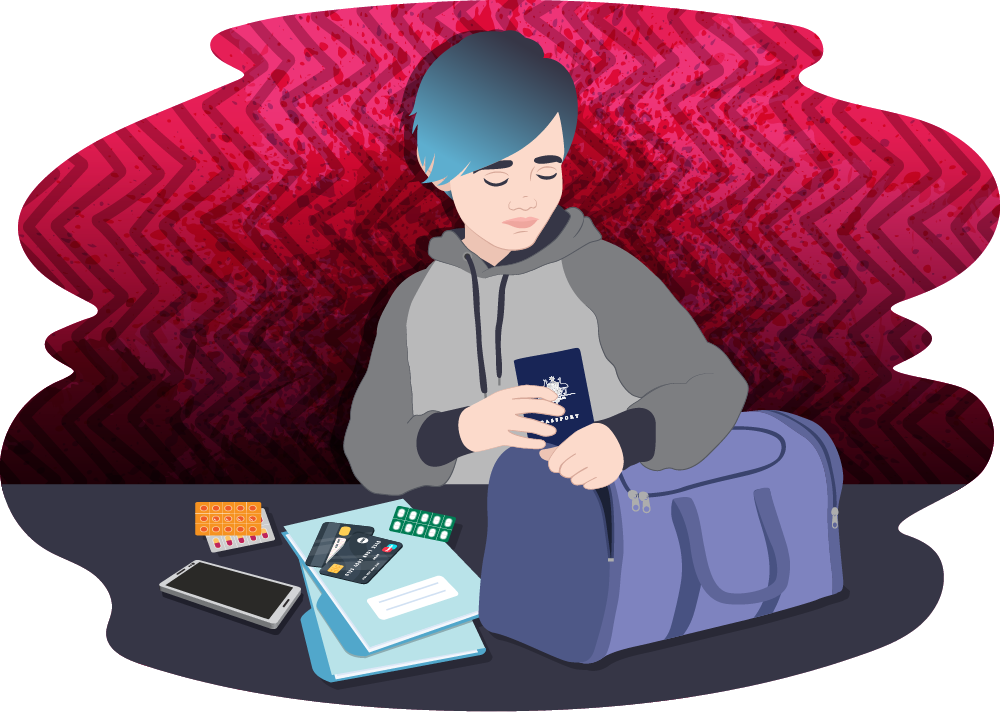My friend’s partner is abusive
If you’re worried that your friend is in an abusive relationship, ...
READ MEBeing in an abusive relationship can be frightening and confusing. Your safety is the top priority and you have a right to be safe. Here’s a guide to staying safe and seeking support.
Content Warning: this article contains violence and trauma related content that may be triggering or distressing.

The abusive person uses violence to control and dominate the other person. This causes psychological harm, fear, and/or physical harm.
Partner abuse can include:
If you are in an abusive relationship, it’s important to have a safety plan. Here are some things you will need to do:
Contact 1800 RESPECT or another domestic violence support service in your state/territory for safety planning support
Organise transport in advance, such as a lift from a friend or a taxi booked in a different name
Have a safe place to go to, such as a family member’s house
Ask a neighbour to call the police if they hear fighting
Pack a bag of essentials (medications, important docs, access to money) and leave it somewhere safe where it can’t be accidentally found, such as a friend’s house
Plan to change the passwords on your social media & email accounts, and change the phone itself, as soon as you have left and are safe
Setup a bank account and ‘burner’ phone the abuser doesn’t know about, in advance
Suspend My Health Record (as this can be used to track you)
If you are receiving financial support from Centrelink, setup a password on the account that only you know
Turn off GPS in your phone and anything that tracks location, e.g. Google accounts, Find My Phone
Keep evidence/a record of abuse in safe place, such as through a GP or SmartSafe+ app
When it comes to violence, they can also choose to harm in ways that aren’t easily visible and don’t always leave marks.
Abuse thrives on secrecy - and people who abuse often target people they think will keep the abuse secret. Asking for support and not knowing what comes next can be frightening. But abuse rarely resolves without intervention, as people who abuse want it to be kept secret so they can keep abusing (and they do lots of things to make it harder for you tell someone and get help).
If you are experiencing violence or abuse in your relationship, please tell someone you trust about what’s going on.
You can also talk to Kids Helpline (anonymously if you choose) about your options.
De-escalation is about preventing abuse from reaching ‘critical’ or ‘explosion’ point in the moment. This won’t stop abuse from happening, but may increase your chances of staying safe in the moment. Here are some things that may help:
These things may result in an escalation of abuse or violence.
You also know the people involved and the situation best. If you have found any strategies that work for you, it’s important to use them.
Here’s a list of some people you could try talking to. Remember, if at first you don’t get help, keep trying until you find somebody who will help you.
Kids Helpline - 1800 55 1800
1800 RESPECT - 1800 737 73
Counsellor
A relative or friend
Doctor or nurse
Psychologist
Most professional intimate partner violence (IPV) and domestic violence (DV) supports won’t judge you, and want to work with you to help you safety plan.
“You're not responsible for someone else’s behaviours. The sole responsibility for violent behaviour rests on the person doing the abuse, not those experiencing it.” – Amanda, Kids Helpline Counsellor
My friend’s partner is abusive
If you’re worried that your friend is in an abusive relationship, ...
READ MEWhy does abuse happen?
You have a right to be safe. Abusive family relationships are complicated. ...
READ MEAbuse in adult relationships
Learn about the different forms of abuse in relationships and where to ...
READ MERevenge porn and image-based abuse
‘Revenge porn’ is a type of image-based abuse that can happen online. ...
READ METalking helps! We’re here for you.
No problem is too big or too small.
We're here 24 hours a day, 7 days a week